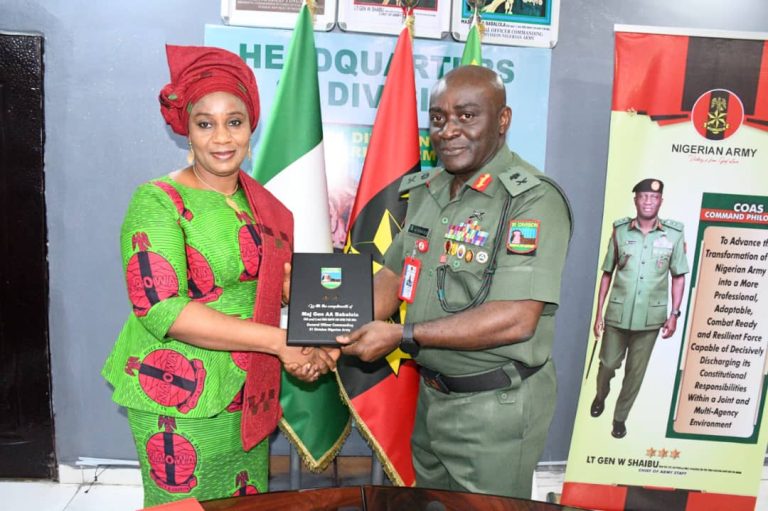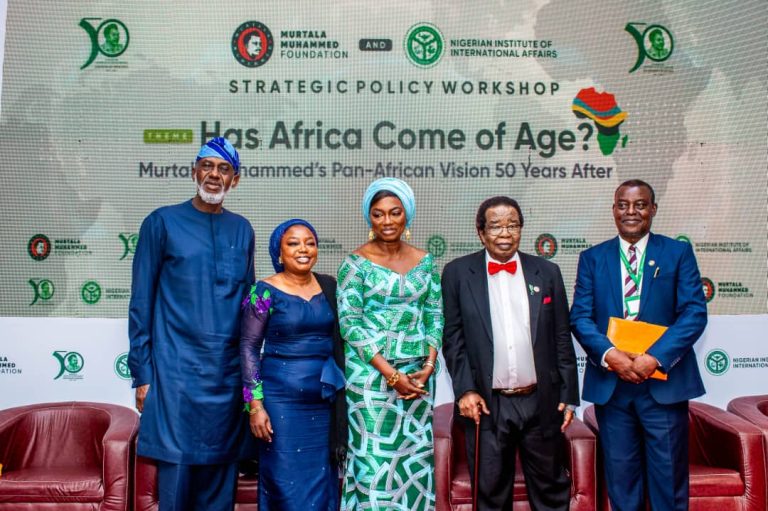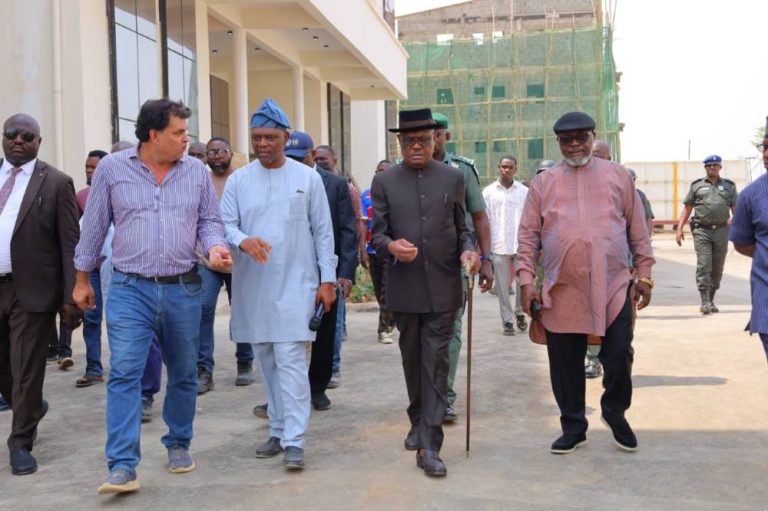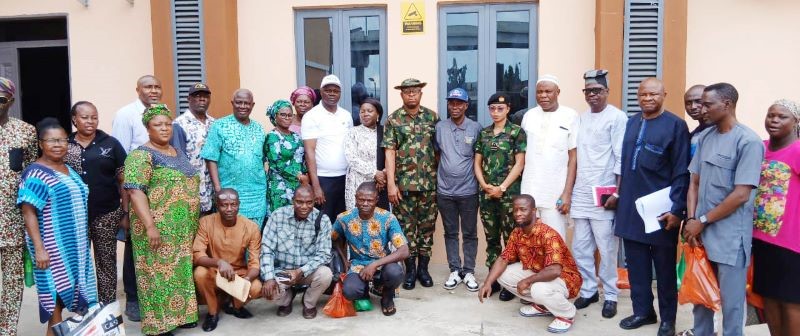
Communities in Lagos State have pledged their unalloyed support to the Chief of Defence Staff (CDS), General Christopher Gwabin Musa, on the initiative of the military diplomacy campaign, which aimed at strengthening the bond between the Armed Forces and local communities in Lagos and across the country.
The event, which took place at the Ikeja and Ojo Local Government Areas, underscores the military’s commitment to protecting all citizens, regardless of ethnic, religious, and cultural affiliations.
PEOPLE AND POWER MAGAZINE, Ikechi Enwereji, was present at the well-attended programme in both LGAs. The stakeholders and several participants expressed delight that the military is not against them but is working tirelessly to protect their lives, properties, and the nation’s borders.
Ikeja Local Government Area Vice Chairman, Hon. Yomi Mayungbe, commended the CDS Musa and all the Armed Forces for their sacrifices in securing our borders.
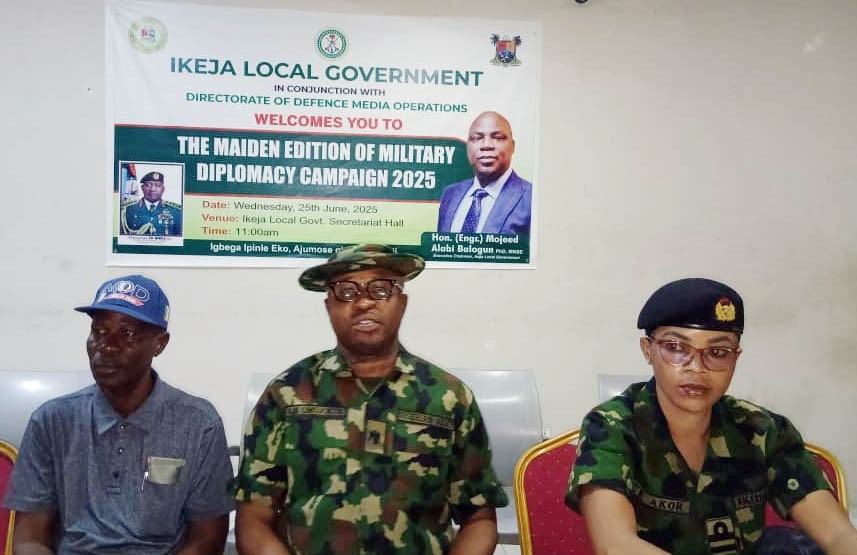
“We are comfortably sitting here today because we have capable military officers fighting for our protection out there. Ever before now, many people often believed that there was no security, and yet they moved from one location to another and still came back home safely. The truth is that, without adequate security, we would not stay here or take a single step out.
“One of the hallmarks of loyalty to our nation is to make sure we pay attention to the security of our country. So, I encourage you to listen attentively to what the military is conveying to us and support them in many ways we can for our safety,” he said.
Speaking during the engagement, the team lead from the Directorate of Defence Media Operations (DDMO), Defence Headquarters, Abuja, Major Ayorinde Omojokun, highlighted several operational activities of the Armed Forces across Nigeria’s six geo-political zones, which are to protect the lives and property of citizens.
He said, “The Military Diplomacy Campaign, organised by the Chief of Defence Staff in collaboration with the Directorate of Defence Media Operations, is a strategic initiative aimed at strengthening bonds between the Armed Forces and local communities across Nigeria.
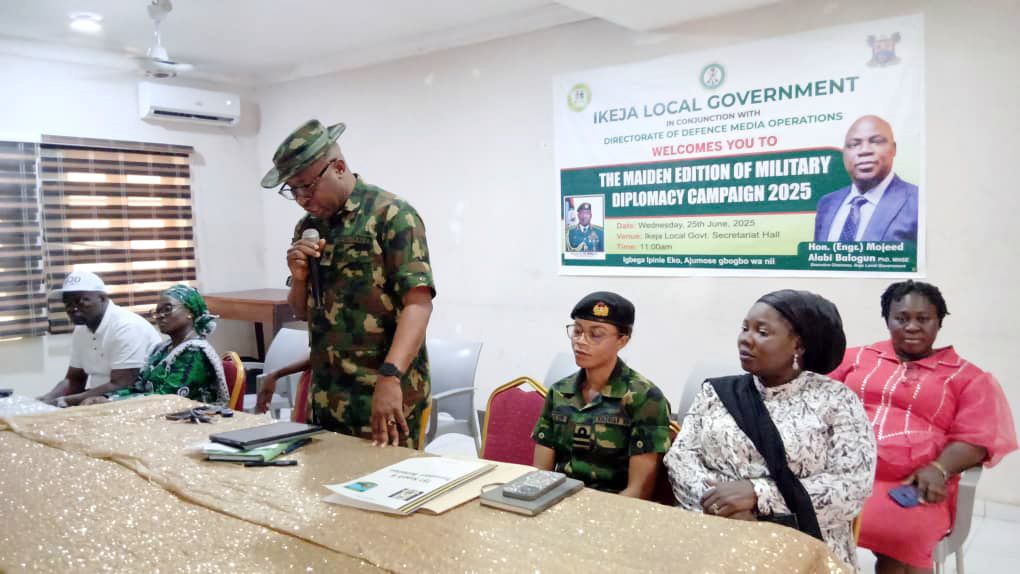
“The campaign conveys the goodwill of the CDS and underscores the military’s commitment to protecting all citizens, regardless of ethnic or cultural affiliations.
“Key talking points include promoting collaboration with cultural leaders and community stakeholders in tackling insecurity, such as insurgency, banditry, kidnapping, cultism, and ethno-religious violence.”
Major Omojokun also emphasised the importance of mutual trust, intelligence sharing, and dispelling misconceptions about military operations, particularly regarding human rights.
According to him, the campaign showcases the military’s non-kinetic interventions, including medical outreaches, educational programs, humanitarian aid, and infrastructure support, adding that community leaders are encouraged to partner with security agencies to foster peace, guide the youth away from criminal influences, and promote nation-building.
Additionally, the campaign stresses the need for critical thinking around information consumption and urges the public to verify military-related news from official sources to curb misinformation and spreading of fake news.
The programme was well attended in all selected locations by Local government officials, Traditional and Religious leaders, community leaders, various cultural groups within the visited communities, youths, as well as representatives of security agencies.
The tour was well received by all the communities visited, as evident during the robust interactive sessions. The communities requested a repeat of the programme, while extending it to other parts of the state.
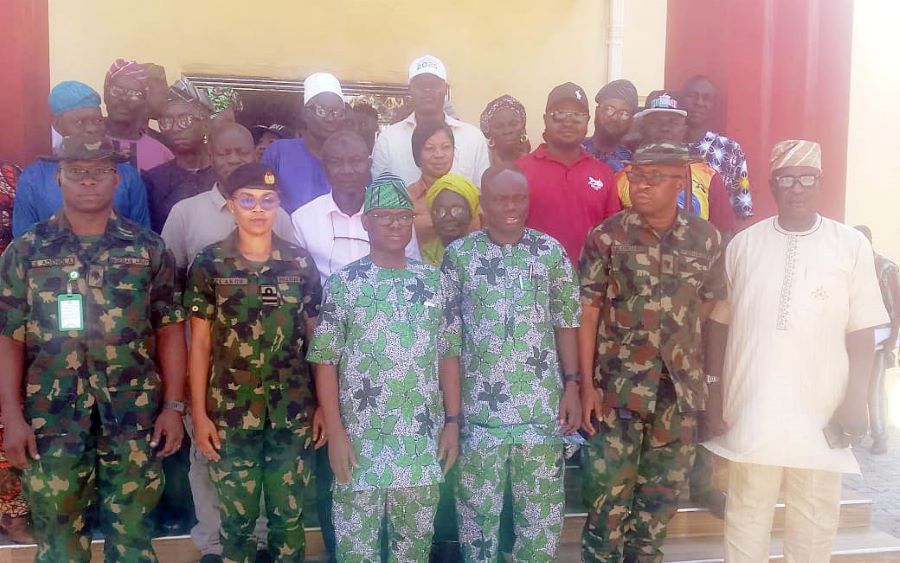
Omojokun further explained the operations of the Armed Forces across the country for the better understanding of the community leaders in attendance.
In North East, “Operation Hadin Kai” focuses on counter-insurgency against Boko Haram and ISWAP, while activities are offensive operations, intelligence-driven raids, recovery of weapons, and resettlement of displaced persons, and the impacts are significant degradation of terrorist capabilities and restoration of relative peace in many communities.
While in North-Central, “Operation Safe Haven” focuses on containing ethno-religious clashes, banditry, and communal violence, particularly in Plateau, Bauchi, and Kaduna states, as activities include Patrols, curfews, dialogue facilitation, and community protection. The impact reduces reprisal attacks and enhances civil-military cooperation.
Also, “Operation Whirl Stroke” focuses on Counter-banditry and anti-herdsmen militia efforts with activities, coordinated ground and aerial operations to dismantle armed groups and restore law and order, as impact includes arrests of notorious gang leaders and recovery of illegal weapons.
In South-South, “Operation Delta Safe” is expected to carry out operations on the protection of oil and gas infrastructure, tackling illegal bunkering, piracy, and militancy activities, including Riverine patrols, destruction of illegal refineries, and maritime surveillance, and the impact has improved safety in waterways and increased crude oil production output.
In North-West, “Operation Fasan Yamma” focuses on anti-banditry and anti-kidnapping operations in Kaduna, Zamfara, Katsina, Sokoto, and Niger states. The activities include intelligence-led air strikes, bush combing, and rescue missions, with impact disrupting bandit camps and improved safety along highways.
In South-West, “Operation Awatse” deals on anti-smuggling, anti-pipeline vandalism, and counter-cultism in Lagos and Ogun states. The activities include Joint patrols with the Nigerian Navy and DSS to secure border areas and coastlines. Its impact is deterrence of transnational criminal activities and improved regional security.
In South-East, “Operation Udo Ka” is about addressing secessionist threats, cultism, kidnapping, and the enforcement of law and order.
The activities include surveillance, curfews, and dismantling of IPOB/ESN-linked hideouts, and the impact includes recovery of arms, reduction in attacks on public infrastructure.
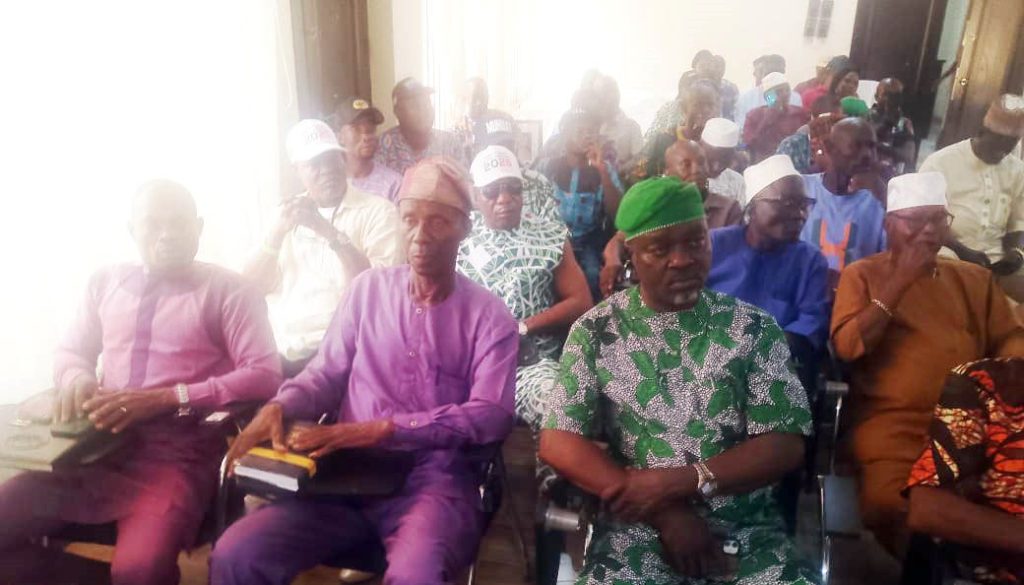
Continuing, Lieutenant (NN) Cythia Akor, however, disclosed the military collaboration with local communities in Nigeria.
According to her, “The Nigerian Armed Forces have developed various collaborative strategies with local communities across the country to support national security, peacebuilding, and development efforts through Civil-Military Cooperation (CIMIC) Programmes. The Nigerian military actively runs CIMIC initiatives to build trust and cooperation with civilians
“These include, free medical outreach programs in conflict zones (e.g., Borno, Yobe, Niger Delta). Construction of boreholes, classrooms, and health clinics in underserved communities, donations of food and relief items to Internally Displaced Persons (IDPs).”
Akor encourages youths to shun violence, illicit drug abuse, thuggery, and other criminal vices that may destroy their future.
She admonishes parents to always monitor the activities of their children, provide good parental guidance, and be the role model their wards should emulate.
In Ojo LGA, the Commanding Officer 149 Battalion, Ojo Military Cantonment, Major IS Adenola, encouraged the participants to embrace the initiative, as the military aims to foster synergy between the citizens.
He urged the Ojo residents to cooperate with the military and disclose any useful information that would help enhance the security of the lives and property of Nigerians.
Responding, the Chairman of Ojo Local Government Area, Honourable Rasulu Olusola Odogwu, expressed gratitude to the Chief of Defence Staff, General CG Musa, for initiating this powerful campaign to foster relationships with the public.
He noted the need for peaceful collaboration and urged community stakeholders, religious leaders, traditional Rulers, and several market leaders to take the message to their respective members.
Hon. Idowu decried the unruly involvement of the youths and younger ones in illicit drug intake, substance abuse, and other criminal tendencies, and cautioned parents to do everything possible to train their children in an orderly manner and eschew crimes.
The programme was well-attended in all selected locations by local government officials, stakeholders, traditional and religious leaders, community leaders, market leaders, various cultural groups within the visited communities, and youths.


